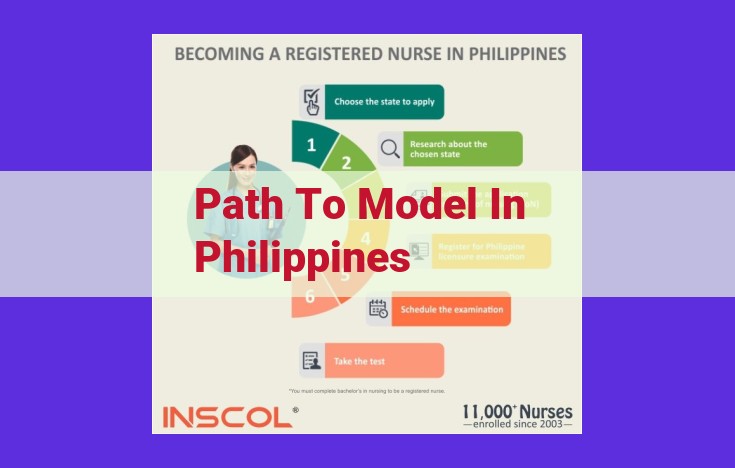In the digital era, data protection is paramount. This post explores the legal framework for personal data protection in the Philippines, including the Data Privacy Act, National Privacy Commission, and other relevant laws. It also highlights case law, enforcement challenges, and recommendations for strengthening data protection rights and compliance, ensuring privacy in the path to model development.
Data Privacy in the Philippines: A Journey to Protect Your Digital Identity
In this digital age, where our lives are increasingly intertwined with technology, personal data protection has become paramount. The proliferation of personal information collected, shared, and stored in the digital realm demands a robust legal framework to safeguard our privacy and prevent misuse. This blog aims to provide an overview of the current legal landscape and the ongoing journey to strengthen data protection rights in the Philippines.
As our digital footprints expand, so do the risks associated with them. Data breaches, identity theft, and targeted advertising practices are just a few of the threats that can compromise our privacy. Protecting our personal data is not merely a matter of legal compliance; it’s about preserving our digital identities and ensuring our privacy in an interconnected world.
The Legal Framework for Personal Data Protection in the Philippines
- Explain the constitutional provisions that protect privacy rights
- Discuss the Data Privacy Act of 2012 (DPA) and its key provisions
- Describe the role of the National Privacy Commission (NPC) in enforcing the DPA
- Mention the Personal Information Protection Act (PIPA) and its key provisions
- Explain the Cybercrime Prevention Act of 2012 and its relevance to data privacy
- Discuss the Revised Penal Code and its criminal provisions related to data privacy violations
The Legal Framework for Personal Data Protection in the Philippines
In the digital age, safeguarding our personal data is paramount. The Philippines has established a comprehensive legal framework to protect citizens’ privacy.
Constitutional Protection of Privacy
The Philippine Constitution enshrines the right to privacy in Article III, Section 3. This provision safeguards individuals from unreasonable searches and seizures, and protects their communications, personal papers, and conversations.
Data Privacy Act of 2012 (DPA)
The cornerstone of data privacy in the Philippines is the Data Privacy Act of 2012 (DPA). This landmark legislation establishes the legal basis for protecting personal information processed by both public and private entities. Key provisions include:
- Definition of Personal Information: Any information that can identify an individual, including name, address, telephone number, and biometric data.
- Principles of Data Processing: Data processing must be transparent, legitimate, and proportionate to the purpose for which it is collected.
- Rights of Data Subjects: Individuals have the right to access, correct, and delete their personal data, and to be informed about how it is processed.
- Data Protection Officer: Organizations must appoint a Data Protection Officer (DPO) who is responsible for overseeing compliance with the DPA.
National Privacy Commission (NPC)
The National Privacy Commission (NPC) is an independent body tasked with enforcing the DPA. The NPC has the authority to:
- Investigate complaints of data privacy violations
- Issue cease-and-desist orders
- Impose administrative fines
- File criminal cases
Personal Information Protection Act (PIPA)
The Personal Information Protection Act (PIPA) of 2010 provides additional protection for sensitive personal information, such as health records and financial data. It requires entities to obtain consent from individuals before collecting this information and restricts its use and disclosure.
Cybercrime Prevention Act of 2012
The Cybercrime Prevention Act of 2012 also addresses data privacy concerns. It criminalizes certain acts involving the unauthorized access, interception, and use of personal information.
Revised Penal Code
The Revised Penal Code contains provisions that prohibit the illegal taking or disclosure of personal information, including libel, slander, and breach of privacy.
Case Law and Jurisprudence: Shaping the Interpretation of Data Privacy Laws
Supreme Court’s Groundbreaking Rulings
The Supreme Court of the Philippines has played a pivotal role in interpreting and enforcing data privacy laws. In Aquino III v. Office of the Ombudsman, the Court recognized the right to privacy as an inherent and fundamental human right embedded within the 1987 Constitution. This landmark decision laid the groundwork for the enactment of the Data Privacy Act (DPA) of 2012.
Defining the Scope of Data Protection
Subsequent court rulings have further clarified the DPA’s scope and application. In National Privacy Commission v. Facebook, the Court emphasized the concept of sensitive personal information and the heightened protection it requires. This ruling underscores the importance of protecting intimate and sensitive data from unauthorized access or disclosure.
Expanding Enforcement Powers
The Supreme Court has also strengthened the enforcement powers of the National Privacy Commission (NPC). In NPC v. Globe Telecom, the Court affirmed the NPC’s authority to investigate and impose sanctions for data privacy violations. This ruling has empowered the NPC to act decisively against entities that mishandle personal data.
Balancing Rights and Liberties
Court cases have also grappled with the delicate balance between data privacy and other constitutional rights. In People v. Velasco, the Court upheld the validity of a search warrant issued to obtain evidence of cyberlibel. This ruling illustrates the Court’s recognition of the need to strike a fair balance between privacy protections and the legitimate interests of law enforcement.
Continuing Evolution of Data Privacy Law
The Supreme Court’s jurisprudence continues to shape the landscape of data privacy law in the Philippines. As technology advances and new challenges emerge, the Court will undoubtedly play a crucial role in interpreting and updating the legal framework to ensure that the privacy rights of Filipino citizens are adequately protected.
Challenges in Data Privacy Enforcement in the Philippines
Protecting personal data in the digital age remains a crucial concern. However, enforcing data privacy laws in the Philippines faces various obstacles that hinder its effectiveness.
Lack of Awareness
Limited awareness about data privacy rights among individuals and businesses is a significant hurdle. Many Filipinos are unaware of the importance of safeguarding their personal information, making them vulnerable to data breaches and misuse. This lack of knowledge poses a challenge for enforcement agencies to hold violators accountable.
Limited Resources
Insufficient resources hamper the National Privacy Commission’s (NPC) ability to effectively enforce data privacy laws. The NPC, tasked with safeguarding data rights, faces resource constraints that limit its capacity to investigate complaints, conduct audits, and prosecute offenders. This constraint weakens the enforcement of data privacy regulations.
Prosecutorial Difficulties
Prosecuting data privacy offenses presents unique challenges. Proving the intent to violate privacy rights is often difficult, as digital evidence can be manipulated or erased. Additionally, the Philippines lacks specific criminal provisions solely dedicated to data privacy violations, making it challenging to hold violators accountable. This hampers the enforcement of data privacy laws and undermines the protection of individuals’ rights.
Recommendations for Strengthening the Path to Data Protection Rights and Compliance
In this digital age where personal data has become an essential currency, safeguarding our privacy is paramount. As we navigate the complexities of data protection in the Philippines, let’s explore recommendations that can empower us and strengthen our path towards data protection compliance.
Enhanced Public Awareness Campaigns:
Ignorance is not bliss when it comes to data privacy. Empowering citizens with knowledge is crucial. By launching extensive public awareness campaigns, we can educate individuals about their rights, the risks associated with data sharing, and the importance of protecting their personal information. These campaigns can utilize various platforms, including social media, traditional media, and community outreach programs.
Increased Funding and Resources for the National Privacy Commission:
The National Privacy Commission (NPC) plays a pivotal role in enforcing data protection laws. However, its effectiveness is often hampered by limited resources. Increasing the NPC’s budget and providing it with the necessary infrastructure and technological advancements will enable the commission to investigate and prosecute data privacy violations more efficiently.
Streamlined Procedures for Investigating and Prosecuting Data Privacy Violations:
Data privacy violations should be met with swift and decisive action. Streamlining the procedures for investigating and prosecuting such offenses is essential. By establishing clear guidelines and simplifying the process, authorities can expedite the resolution of cases, ensuring that violators are held accountable and deterring future breaches.
Cooperation between the NPC and Other Law Enforcement Agencies:
Collaboration is key in combating data privacy violations. The NPC should foster close relationships with other law enforcement agencies, including the Philippine National Police and the National Bureau of Investigation. This collaborative approach will facilitate the sharing of information, resources, and expertise, leading to more effective investigations and prosecutions.
Regular Review and Amendments of Data Privacy Laws:
The digital landscape is constantly evolving, necessitating regular reviews and amendments of data privacy laws. By keeping abreast of technological advancements and emerging trends, policymakers can ensure that our legal framework remains relevant and effective in protecting our data.
Together, these recommendations can pave the way for a more robust data protection regime in the Philippines, empowering citizens and ensuring that our personal information remains safeguarded in this rapidly evolving digital world.




